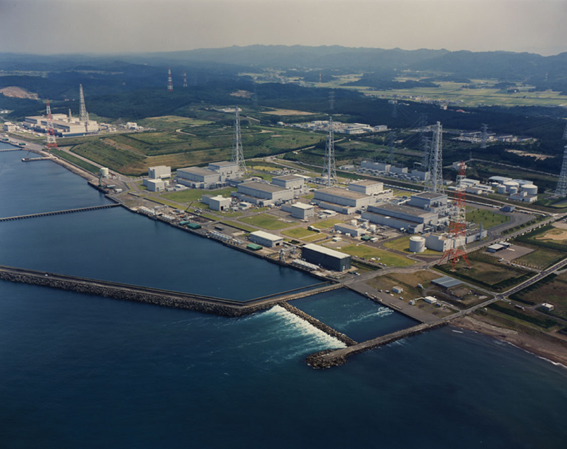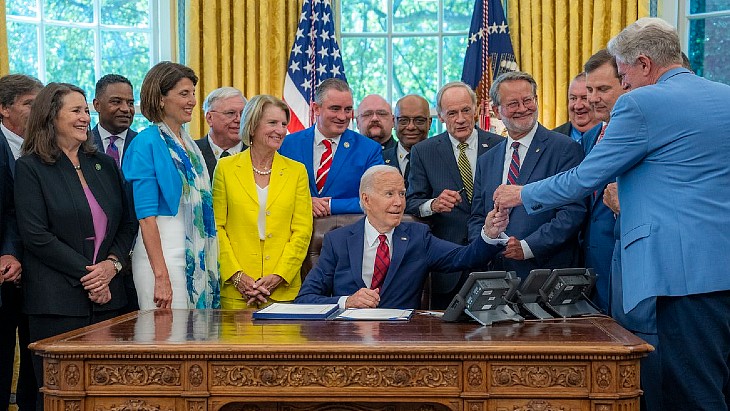Japanese utilities enhance nuclear safety cooperation
 Three Japanese utilities - Chubu, Hokuriku and Tokyo Electric Power Company - have agreed to collaborate on improving their nuclear safety through technical cooperation.
Three Japanese utilities - Chubu, Hokuriku and Tokyo Electric Power Company - have agreed to collaborate on improving their nuclear safety through technical cooperation.Three Japanese utilities - Chubu, Hokuriku and Tokyo Electric Power Company (Tepco) - have agreed to collaborate on improving their nuclear safety through technical cooperation.
 |
| Tepco's seven-unit Kashiwazaki-Kariwa plant (Image: Tepco) |
They own and operate the same types of reactors: boiling water reactors (BWRs), including Advanced Boiling Water Reactors (ABWRs). Chubu owns the Hamaoka nuclear power plant in Shizuoka prefecture, Hokuriku owns the Shika plant in Ishikawa prefecture and Tepco owns the Kashiwazaki-Kariwa plant in Niigata prefecture.
They announced today the signing of an agreement through which they will collaborate in improving nuclear safety. They will cooperate in areas such as improving operator skills, including through exercises in training simulators. They will also share operating experience, including information on operation management and benchmarking.
"The geographic accessibility among these three companies also allows them to cooperate on accident recovery and evacuation of residents in the event of a nuclear accident," Tepco said.
Through the agreement, the utilities will send their engineers to the other partners' facilities in the event of an accident and provide assistance in recovery measures. The companies will also participate in joint nuclear emergency drills.
It will "enhance the effectiveness" of the Cooperation Agreement Between Nuclear Operators for Nuclear Emergencies, which was signed by Japan's ten electric power companies, Japan Nuclear Fuel Limited and the Japan Electric Power Development Corporation (J-Power) in October 2014.
The three companies said they will "continue to make every effort to ensure further safety and reliability as nuclear operators".
In April 2016, four electric power companies operating in neighbouring areas in western Japan - Chugoku, Kansai, Kyushu and Shikoku - agreed to extend their existing cooperation in responding to nuclear emergencies as well as cooperating in the decommissioning of reactors.
Researched and written
by World Nuclear News









_88592.jpg)
_66488.jpg)

